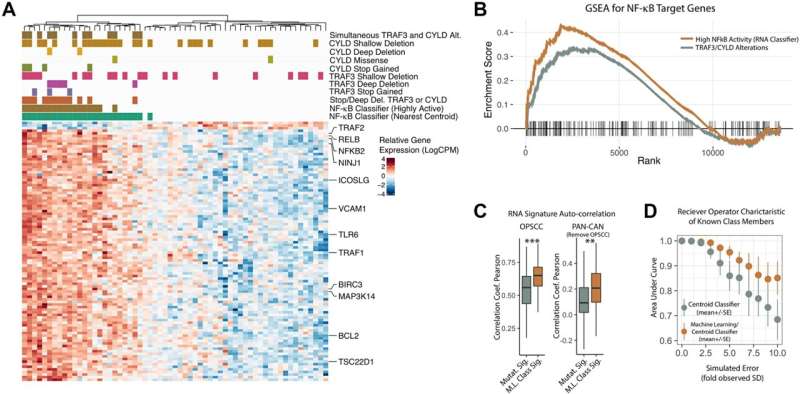
A new research paper has been published in Oncotarget, titled “NF-κB over-activation portends improved outcomes in HPV-associated head and neck cancer.”
Head and neck squamous cell carcinoma (HNSCC) is a devastating disease that impairs fundamental tissues involved in respiration, phonation and digestion. HNSCC is primarily caused by exposure to either ethanol and tobacco or the human papillomavirus (HPV). Among patients with HPV+ HNSCC, there is a growing clinical demand to develop robust stratification tools to accurately identify patients with good or poor prognosis.
According to the research, “While oncologic outcomes for HPV+ HNSCC are generally favorable, treatment paradigms developed for HPV-negative disease burden many survivors of HPV+ HNSCC with lifelong debilitating treatment-associated side effects. On the other hand, ~30% of HPV+ HNSCC patients exhibit a more aggressive disease course and suffer recurrence.”
Somatic mutations or deletions in TRAF3 or CYLD identified a subset of HPV+ HNSCC associated with improved outcome. A cross talk between canonical and non-canonical NF-κB signaling suggests that TRAF3 and CYLD affect both NF-κB pathways.
“Herein, we demonstrate that an RNA-based classifier trained on tumors harboring these mutations may improve prognostic classification,” state the researchers.
To improve on genomic classification, the researchers designed the current study to provide a foundation for development of NF-κB related, RNA based classification strategies to better identify HPV+ HNSCC patients with good or poor prognosis that could potentially aid in future efforts towards treatment personalization.
“This report validates and expands on our findings that significant expression changes related to NF-κB activity occur in the subset of HPV+ HNSCC tumors marked by TRAF3 or CYLD mutations. We are planning future studies investigating the importance of ‘long-tail’ mutations in the NF-κB pathway, which might further illuminate the origins of NF-κB dysregulation in HPV+ HNSCC,” they note.
Source: Read Full Article